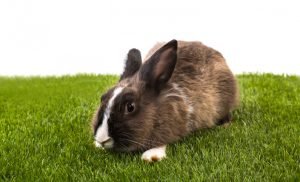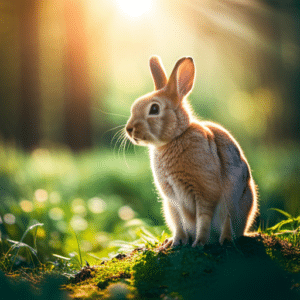Taking care of your rabbit’s dental health is a vital aspect of pet ownership, as these adorable creatures require special attention to maintain their distinctive teeth. In this article, we will delve into the importance of dental care for rabbits and equip you with valuable knowledge to keep your bunny smiling brightly. From understanding the role of rabbit owners in maintaining dental health to recognizing common causes and clinical signs of dental issues, this comprehensive guide will offer practical tips for preventing dental disease in your furry friend. We will also explore diagnostic procedures such as radiographs, sedation, and general anesthesia for dental treatments, as well as discuss the prognosis for rabbits suffering from dental complications. Whether you are a novice or a seasoned rabbit owner, this article promises enriching insights that will ensure a lifetime of healthy dental hygiene for your beloved bunny.
Understanding the Importance of Dental Health in Rabbits
Rabbits are known for their unique dental anatomy, including constantly growing incisors and cheek teeth that require proper wear and tear to prevent dental disease. In the wild, rabbits feed on a diverse diet of fibrous plants, which helps keep their incisor teeth healthy and well-maintained. However, domesticated rabbits often lack access to a varied diet, leading to dental problems such as overgrowth, malocclusion, and other dental diseases. Neglecting dental care can result in serious health complications, such as abscesses, infections, and even death. Therefore, it is crucial for rabbit owners to prioritize their pet’s dental health and seek veterinary care at the first sign of a problem.
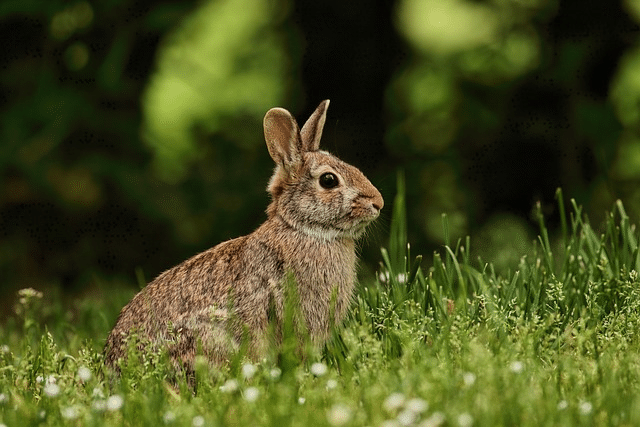
The Role of Rabbit Owners in Maintaining Dental Health
As a rabbit owner, it is your responsibility to ensure your bunny’s dental health is taken care of. This includes feeding your rabbit a healthy, fiber-rich diet, providing plenty of chew toys to help wear down their teeth, and taking them to a veterinarian regularly for dental checkups. You should also observe your rabbit’s eating habits, as a sudden change in appetite or difficulty eating can be signs of dental issues. Additionally, it’s essential to address dental problems promptly to prevent further complications.
Common Causes of Dental Disease in Rabbits
There are several common causes of dental disease in rabbits, including a poor diet, lacking in fiber or too low in nutrients, overgrown teeth, malocclusion, and trauma. Inadequate dental care and poor genetics can also play a role. Overgrown teeth can result from inadequate wear and tear, which can lead to dental abscesses and infections. Malocclusion is a misalignment of the teeth, which can cause abnormal wear and tear, mouth ulcers, facial swelling, and difficulty eating. Trauma to the mouth can also cause dental fractures, which can lead to dental infections. Therefore, it is essential to maintain proper dental hygiene for your rabbit and seek veterinary care as soon as you notice any dental-related issues.
Recognizing the Clinical Signs of Dental Issues in Your Rabbit
Recognizing the clinical signs of dental issues in your rabbit is crucial for early detection and prompt treatment. Some common signs of dental problems in rabbits include drooling, difficulty eating or picking up food, weight loss, bad breath, facial swelling, and lethargy. You may also notice your rabbit rubbing its face or pawing at its mouth, indicating discomfort or pain. If you observe any of these signs, it’s important to take your rabbit to a veterinarian right away for a dental examination.
Overgrown Teeth: Causes, Complications, and Treatment
Overgrown teeth in rabbits can lead to serious complications, including abscesses, infections, and difficulty eating. If left untreated, overgrown teeth can even result in death. Overgrown teeth can be caused by various factors, such as a lack of wear and tear from a fiber-rich diet or genetics. Proper dental care and regular veterinary checkups can help prevent overgrown teeth.
If your rabbit is suffering from overgrown teeth, your veterinarian may recommend a dental trim or filing. Sedation or general anesthesia may be required for this procedure, as rabbits are often stressed by the handling needed for a dental trim. Your veterinarian may also prescribe antibiotics or antifungal medication to treat infections or abscesses that pet rabbits may have developed.
Incisors vs. Molars: The Different Types of Rabbit Teeth
Rabbits have two types of teeth: incisors and molars. Incisors are the four front teeth that are visible when your bunny opens its mouth. They are used for grasping and cutting food. The molars are the teeth in the back of the mouth that are used for grinding and chewing. Rabbits have six upper and six lower molars. These teeth are not visible unless you look inside the mouth.
The incisors are the teeth most commonly affected by dental disease in rabbits. Overgrown or misaligned incisors can prevent your bunny from eating properly, leading to malnutrition and weight loss. It’s essential to regularly check your rabbit’s incisors for any abnormalities or wear.
Molars are critical for maintaining your bunny’s dental health. Proper wear and tear of the molars helps to prevent dental disease. However, overgrown or misaligned molars can cause pain, difficulty eating, and even abscesses. Regular veterinary checkups and monitoring of your rabbit’s diet and behavior can help prevent dental disease in the molars.
Teeth Trimming and Occlusal Adjustments for Rabbits: What You Need to Know
Teeth trimming and occlusal adjustments are common procedures recommended for rabbits with dental issues. Trimming involves shortening the incisors and molars to the appropriate length to prevent overgrowth. In contrast, occlusal adjustments involve filing or grinding the teeth to improve alignment and prevent malocclusion. Both procedures are typically performed under sedation or general anesthesia to ensure the rabbit’s comfort and safety. Your veterinarian may also recommend antibiotics or pain medication post-procedure to prevent infections and manage discomfort.
Tips for Preventing Dental Disease in Your Rabbit
To prevent dental disease in your rabbit, you should provide them with a diverse and fiber-rich diet, including hay, fresh vegetables, and limited pellets. Chew toys such as wooden blocks, apple branches, and cardboard boxes can help wear down their teeth naturally. Regular veterinary checkups are also essential for maintaining your rabbit’s dental health. Be sure to monitor your bunny’s eating habits closely, as any sudden changes in appetite or difficulty eating can be signs of dental problems. By following these tips and seeking prompt veterinary care for any dental issues, you can help your beloved bunny maintain a healthy smile for years to come.
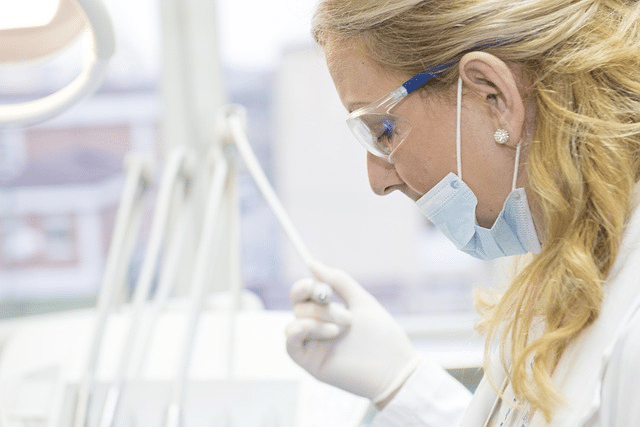
The Value of Regular Physical Exams for Rabbit Dental Health
Regular physical exams are critical for maintaining your rabbit’s dental health. During these exams, your veterinarian will check your bunny’s teeth for signs of overgrowth, malocclusion, or other dental problems. The vet may also recommend dental procedures or prescribe medications to prevent dental issues from progressing further. Additionally, regular exams can help detect dental disease early, ensuring prompt treatment and preventing further complications. Therefore, scheduling regular physical exams with your veterinarian is crucial for maintaining your rabbit’s dental hygiene and overall health.
Slobbers and Wet Dewlap: Common Clinical Problems in Rabbits
Slobbers and wet dewlap are common clinical problems in rabbits that are often related to dental issues. Slobbers refer to excess drooling, which can be caused by overgrown teeth or improper tooth alignment. Wet dewlap, on the other hand, refers to a wet and matted area under the chin or around the mouth, which can also be caused by excessive drooling. Both of these conditions can lead to skin irritation, infection, and hair loss if left untreated.
To prevent slobbers and wet dewlap, it’s essential to maintain your rabbit’s dental health by providing a balanced and fiber-rich diet, including hay, fresh vegetables, and limited pellets. Regular veterinary checkups can also help detect dental issues early before they progress further. Additionally, providing your rabbit with plenty of chew toys to help wear down their teeth can also help prevent slobbers and wet dewlap. If you notice any signs of excess drooling or wet dewlap, it’s crucial to take your rabbit to a veterinarian promptly for diagnosis and treatment.
Treating Dental Disease in Rabbits: An Overview
When treating dental disease in rabbits, the first step is proper diagnosis, which involves a thorough physical exam, radiographs, and possibly sedation or general anesthesia. Treatment options vary depending on the severity and extent of the dental disease but can include teeth trimming, occlusal adjustments, and antibiotics to treat infections or abscesses. In some cases, surgery may be necessary to remove overgrown or misaligned teeth. It’s crucial to develop a comprehensive treatment plan with your veterinarian and follow up regularly to ensure your bunny’s optimal dental health. Additionally, proper dental hygiene and preventive measures can help prevent future dental issues in rabbits, preserving their adorable smile and overall health.
Understanding Sedation and General Anesthesia for Rabbit Dental Procedures
Sedation and general anesthesia may be necessary for some rabbit dental procedures to ensure the animal’s safety and comfort. Rabbits are often stressed by the handling required for dental procedures, and sedation or general anesthesia can help reduce this stress. However, as with any medical procedure, there are risks involved, and it’s essential to discuss the potential benefits and risks with your veterinarian before going ahead with sedation or general anesthesia. Your veterinarian will thoroughly examine your rabbit before administering anesthesia and will monitor your bunny throughout the entire procedure to ensure its safety. If your rabbit requires sedation or general anesthesia for a dental procedure, your veterinarian will provide detailed instructions on how to prepare your bunny for the procedure and what to expect during recovery.
The Importance of a Weekly Tooth Check for Your Rabbit
Performing a weekly tooth check on your rabbit is an essential part of maintaining your bunny’s dental health. During this check, you should inspect your rabbit’s incisors and molar teeth for any signs of overgrowth, malocclusion, or other issues. You should also monitor your bunny’s behavior and eating habits for any changes that may indicate dental problems.
To perform a tooth check, gently hold your rabbit and gently lift its upper lip to inspect the incisors. The teeth should be aligned, straight, and not too long. If you notice any signs of overgrowth, malocclusion, or other abnormalities, take your rabbit to a veterinarian for evaluation and treatment.
You should also monitor your bunny’s eating habits during the tooth check. Watch for any changes in appetite, difficulty picking up food, or dropping food from its mouth, as these can be signs of dental problems. Regular tooth checks, along with a healthy diet and veterinary checkups, can help prevent dental issues from progressing and ensure your bunny’s overall health and well-being.
How Proper Diagnosis Affects the Prognosis of Rabbit Dental Health
Pro-diagnosis is crucial for the prognosis of rabbit dental health. Identifying dental issues early can lead to successful treatment and prevent further complications. Diagnostic procedures such as radiographs, physical exams, and sedation can provide valuable information on the extent and severity of dental problems, allowing for an appropriate treatment plan. The prognosis for rabbit dental health depends on the type and severity of the dental issue, the response to treatment, and preventive measures taken to maintain the bunny’s dental hygiene. By staying vigilant and seeking prompt veterinary attention when necessary, rabbit owners can ensure a positive prognosis for their furry friend’s dental health and well-being.
Treating Abscesses and Other Dental Complications in Rabbits
Abscesses and other dental complications in rabbits are often related to overgrown or misaligned teeth. Abscesses are pus-filled pockets that can develop around the tooth roots, leading to swelling, pain, and infection. Other dental complications can include jaw fractures, oral tumors, and internal disorders. Treatment for abscesses and other dental complications in rabbits depends on the severity of the problem and can range from antibiotics and pain management to surgery to remove the affected tooth or tissue. As with any dental issue, proper diagnosis, treatment, and preventive measures are crucial for maintaining a healthy smile and overall health for your beloved bunny.
Using Radiographs as a Diagnostic Tool for Rabbit Dental Health
Radiographs can be a valuable diagnostic tool for rabbit dental health. X-rays of the head and mouth can help identify overgrown or misaligned teeth, abscesses, fractures, and other dental issues that may not be visible during a physical exam. Radiographs can also help determine the extent and severity of a dental problem, leading to more accurate diagnosis and treatment planning. However, to obtain accurate and safe radiographs, sedation or general anesthesia is often necessary for rabbits, as they are highly sensitive and react poorly to handling and restraint. Your veterinarian can provide detailed instructions on preparing your bunny for radiographs, including fasting and medication protocols, to ensure a safe and successful diagnostic procedure.
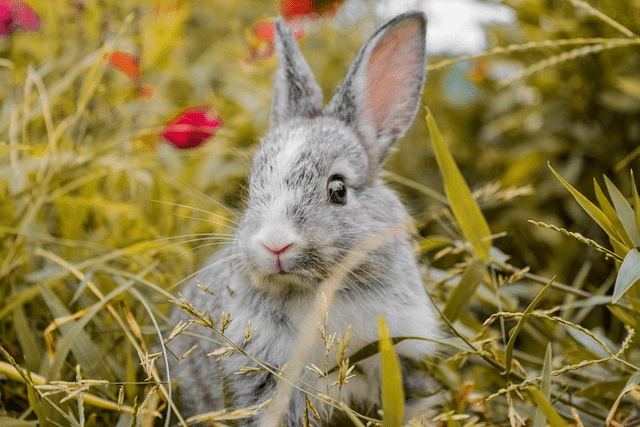
Can a rabbit live without teeth?
Rabbits require their teeth for various activities, such as eating, grooming, and self-defense. They use their incisors to cut and grasp food, while their molars help grind and crush it. Therefore, it’s not recommended for rabbits to live without teeth, as they will struggle to eat and maintain proper nutrition. However, if a rabbit has severe dental issues, such as chronic infections or overgrowth, and all other treatments have failed, tooth extraction may be necessary as a last resort. In such cases, your veterinarian will provide detailed instructions on how to care for your rabbit after tooth extraction and adjust its diet and feeding methods accordingly to ensure it can live a healthy and comfortable life.
How long does it take for rabbit teeth to grow back?
Rabbit teeth continuously grow throughout their lives, so if a tooth falls out or is extracted, it will typically grow back. The time it takes for a rabbit’s tooth to grow back depends on several factors, including the rabbit’s age, the type of tooth, and the extent of damage or loss. Incisors typically take around 3-4 weeks to grow back, while molars can take several months. It’s crucial to monitor your rabbit’s teeth after an injury or extraction to ensure proper regrowth and address any issues promptly. Your veterinarian can provide detailed instructions on caring for your rabbit’s teeth during the regrowth period and recommend any necessary treatments or dietary adjustments.
How can I provide a more natural diet to promote healthy teeth in my rabbit?
A more natural diet for rabbits should include a mix of high-quality hay (such as timothy, orchard, or oat), fresh vegetables, and a small portion of pellets. Hay should be the main component of a rabbit’s diet, as it provides the necessary fiber to promote proper digestion and necessary wear on the teeth. Fresh vegetables can include leafy greens (such as romaine lettuce, kale, and arugula), bell peppers, and herbs (like parsley, cilantro, and basil). When selecting pellets, opt for those that are low in fat and sugar, made primarily from compressed hay, and free from additives and artificial ingredients.
Can dental issues in rabbits cause behavioral changes?
Yes, dental issues in rabbits can lead to behavioral changes due to pain and discomfort. Rabbits experiencing dental problems might become less active, more irritable, or even aggressive when being handled. They may also avoid certain types of food, especially harder items, and may spend more time hiding or resting. It is important to monitor your rabbit’s behavior and consult with a veterinarian if you notice any unusual changes.
Are there any specific breeds of rabbits that are more prone to dental problems?
While dental issues can affect all breeds of rabbits, some breeds are more predisposed to developing dental problems due to their genetics or facial structure. For example, breeds with a “brachycephalic” facial structure, such as the Netherland Dwarf or the Holland Lop, are more likely to suffer from dental malocclusion due to their shortened lower jaw. Additionally, some breeds have a higher predisposition to teeth overgrowth, such as the Lionhead or Angora breeds
How can I create a safe and stimulating environment for my rabbit to promote healthy teeth wear and prevent boredom?
Rabbits require mental and physical stimulation to keep their teeth healthy and prevent boredom, which could lead to destructive behaviors or health issues. Providing a spacious enclosure with plenty of hiding places, platforms, and ramps encourages your pet rabbit to explore and exercise. Additionally, offering a variety of safe, rabbit-approved toys will help promote natural teeth wear. These can include wooden blocks, cardboard tubes, and paper bags. Make sure to rotate the toys often to keep your rabbit interested and engaged.
Are there any oral health warning signs that warrant an immediate visit to the vet?
Some oral cavity health issues in rabbits require immediate veterinary attention. If you notice any of the following symptoms, arrange an appointment with your veterinarian as soon as possible:
– Excessive drooling
– Swelling or lumps around the mouth or jaw
– Bleeding from the mouth
– Extreme weight loss or refusal to eat
– Foul odor coming from the mouth
Prompt veterinary care can help prevent serious complications and ensure that your rabbit receives appropriate treatment to maintain their dental health.
At what age do rabbits start to develop teeth, and are there any specific considerations for young rabbits’ dental care?
Rabbits are born without teeth, but their incisors begin to emerge within a week or two after birth, followed by the molars in the following weeks. By the time they are weaned, around six to eight weeks old, young rabbits have a complete set of baby teeth. Baby teeth are replaced by permanent teeth between three to five months of age. During this period, it’s essential to provide young rabbits with a high-quality diet, including hay and a small portion of alfalfa pellets, to support the growth and development of their teeth. Regularly monitoring their teeth and scheduling veterinary checkups can help detect and address any dental issues at an early stage.
Conclusion: Prioritizing Dental Health for a Happy and Healthy Rabbit
In conclusion, prioritizing your rabbit’s dental health is essential for ensuring a long, happy, and healthy life for your furry companion. By understanding the importance and unique aspects of a rabbit’s dental anatomy, owners can take proactive steps to prevent and address dental issues. Providing a fiber-rich, varied diet, offering chew toys, and scheduling regular veterinary checkups can significantly reduce the risk of dental diseases. Moreover, paying close attention to your rabbit’s behavior, conducting regular tooth checks, and seeking prompt veterinary care when needed are crucial components of effective dental care. By following these measures and staying vigilant, rabbit owners can ensure their beloved bunnies maintain a healthy, radiant smile and thrive throughout their lives.

